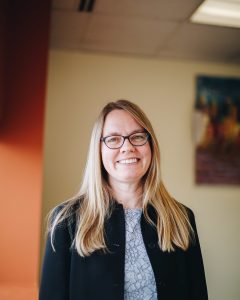As part of a legal action to force a change in conditions under which children are held, the Center for Human Rights and Constitutional Law filed transcripts of some of the attorneys’ interview with children. Here are some of the children’s stories:
The following are excerpts from declarations filed in connection with the request for Temporary Restraining Order in Flores v. Barr
About unsafe / unsanitary conditions
We are in a metal cage with 20 other teenagers with babies and young children. We have one mat we need to share with each other. It is very cold. We each got a mylar blanket, but it is not enough to warm up. There are benches but we cannot sleep there. Sometimes it is so crowded we cannot find a place to sleep, so they allow a few of us to sleep outside the fenced area. The lights are all of the time. (Age 16, female)
I’m hungry here at Clint all the time. I’m so hungry that I have woken up in the middle of the night with hunger. Sometimes I wake up from hunger at 4 a.m., sometimes at other hours. I’m too scared to ask the officials here for any more food, even though there is not enough food here for me. (Age 12, male)
We slept on mats on the floor and gave us aluminum blankets. They took our baby’s diapers, baby formula, and all of our belongings. Our clothes were still wet and we were very cold, so we got sick… I’ve been in the US for six days and I have never been offered a shower or been able to brush my teeth. There is no soap and our clothes are dirty. They have never been washed. (Age 16, female,)
Three days ago my baby soiled his clothes. I had no place to wash the clothes so I could not put them back on my baby because when he went to the bathroom his poop came out of his diaper and all over his clothing. Since then, my baby of only three months has only been wearing a small little jacket made of t-shirt material. I have nothing else for my son to wear…. I have been told they do not have any clothes here at this place. I just want my baby to be warm nough. I am having to make sure I carry my baby super close to me to keep his little body warm. (Age 17, female)
They told us that we could only have one layer of clothing, and they threw away the rest of our clothes in the garbage. (Age 16, male)
My baby got wet and I had to take his pants off two days ago and I have not been able to get any pants for him. (Age 18, female)
The day we arrived, my baby became sick. She could not open her eyes and had a fever which got much worse during the day. I asked the guard for help and he told me to “just deal with it.” I asked for help again, and was ignored. The third time I asked, I was crying because she was so much worse I was very worried for her. After two days, they took her to the doctor.” (Age unknown, female)
We have only bathed once since being detained. On June 4th, we were taken to an area with about 28 showers. We bathed and brushed our teeth. Since then, however, we have been able to bathe. I have not been able to wash and clean my baby since June 4th. We do not have toothbrushes or toothpaste or towels in the cages. My daughter’s onesie is very dirty. I have not been able to wash it since June 4th. (Age 17, female)
The day after we arrived here, my baby began vomiting and having diarrhea. I asked to see a doctor and they did not take us. I asked again the next day and the guard said “She doesn’t have the face of a sick baby. She doesn’t need to see a doctor.” My baby daughter has not had medicine since we first arrived. She has a very bad cough, fever and continues to vomit and have diarrhea. (Age 16, female)
At Ursula, we have not been able to shower. The toilet is out in the open in the cage, there is no door for any privacy. There is water but no soap to wash our hands. There are no paper towels to dry our hands. We have not been given a toothbrush or toothpaste to brush our teeth. (Age 17, male)
I was given a blanket and a mattress, but then, at 3:00 a.m., the guards took the blanket and mattress. My baby was left sleeping on the floor. In fact, almost every night, the guards wake us at 3:00 a.m. and take away our sleeping mattresses and blankets. They leave babies, even little babies of two or three months, sleeping on the cold floor. For me, because I am so pregnant, sleeping on the floor is very painful for my back and hips. I think the guards act this way to punish us. (Age 17, female)
Once, I needed clean clothes for my baby because she threw up but when I asked for them I was told they didn’t have any available. She is still in the same dirty clothes. (Age 17, female)
Children Taking Care of Children
I started taking care of xxx (age 5) in the Ice Box after they separated her from her father. I did not know either of them before that. She was very upset. The workers did nothing to try to comfort her. I tried to comfort her and she has been with me ever since. XXX sleeps on a mat with me on the concrete floor. We spend all day every day in that room. There are no activities, only crying. (Age 15, female)
There are little kids here who have no one to take care of them, not even a big brother or sister. Some kids are only two or three years old and they have no one to take care of them. (Age 11, male)
I am in a room with dozens of other boys. Some have been as young as 3 or 4 years old. Some cry. Right now, there is a 12 year old who cries a lot. Others try to comfort him. One of the officers makes fun of those who cry. (Age 17, male)
Family Separation
I was apprehended with my father. The immigration agents separated me from my father right away. I was very frightened and scared. I cried. I have not seen my father again… I have had a cold and cough for several days. I have not seen a doctor and I have not been given any medicine. (Age 5, male)
They took us away from our grandmother and now we are all alone. They have not given us to our mother. We have been here for a long time. I have to take care of my little sister. She is very sad because she misses our mother and grandmother very much… We sleep on a cement bench. There are two mats in the room, but the big kids sleep on the mats so we have to sleep on the cement bench. (Age 8, male)
At 3 AM the next day the officers told us that our grandmother would be taken away. My grandmother tried to show the officers a paper signed by my parents saying that my grandmother had been entrusted to take care of us. The officers rejected the paperwork saying that it had to signed by a judge. Then the officers took my dear grandmother away. We have not seen her since that moment. (Age 12, female)






